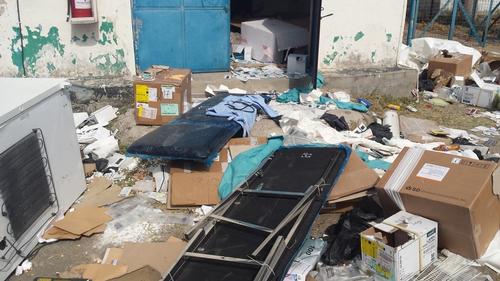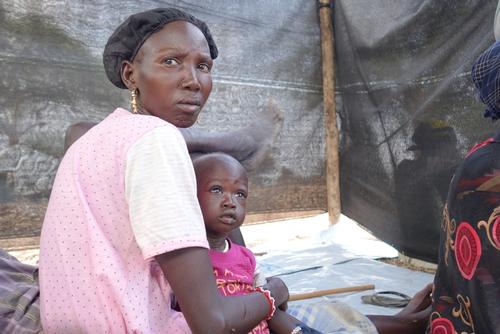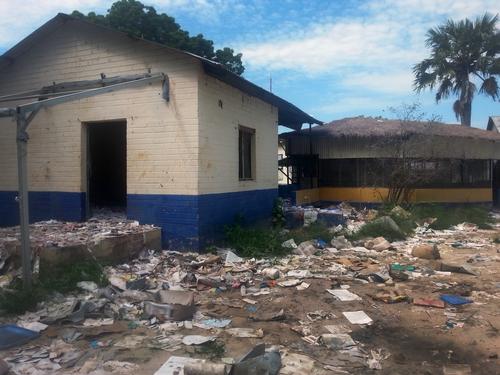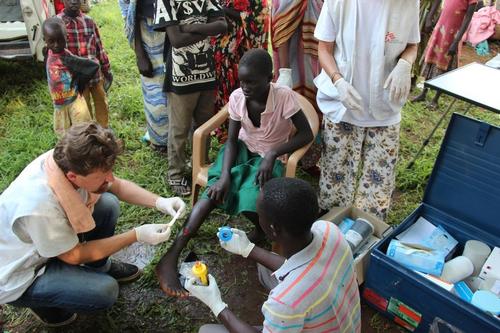Juba/Brussels – Médecins Sans Frontières (MSF) strongly condemns the looting of its medical centre in Pibor, South Sudan which occurred during and after heavy fighting from February 23 to 25, which also destroyed large sections of the town.
Medical supplies, therapeutic food for malnourished children and even patients’ beds were stolen from the MSF facility during the looting. Bullet casings were found throughout the compound and the few items that were not stolen, such as IV bags, life-saving drugs and medical documents, were damaged and strewn throughout the compound with no regard for the urgent medical needs of the population.
“This is a blatant and outrageous attack on life-saving medical care,” said Corinne Benazech, MSF head of mission in South Sudan. “Every single item of value that was not bolted to the floor was stolen, even the hospital beds for treating sick and malnourished children in the pediatric ward. Sadly, pregnant women, children and those most vulnerable will suffer as a result of this looting, as this was one of the only medical centres available for patients to access life-saving care.”
The MSF medical centre was the only functioning health centre in the entire region. It was also the hub from which MSF ran its medical services in nearby Gumuruk and Lekongole. Cumulatively, these projects serve a population of approximately 170,000 people.
As a result of this callous looting, MSF’s ability to provide medical assistance in all three locations has been significantly reduced and crisis-affected populations now confront the possibility of significant avoidable disease and death. The medical crisis faced by the population is compounded by significant destruction within Pibor and widespread looting.
Throughout town, many homes and shelters have been burnt, looted or destroyed and the market is completely empty. Thousands of people have also fled to the bush, where there is no access to medical care whatsoever. This week, MSF completed an assessment mission to Verthet, where teams stabilized three patients with gunshot wounds and encountered significant unmet health needs.
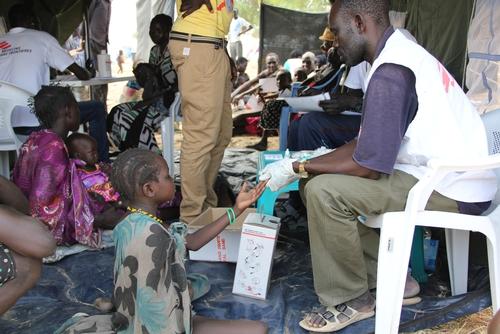
“The humanitarian situation in the Pibor area is critical right now,” said Benazech. “Thousands of people have fled to the bush and have no access to humanitarian assistance. With homes burned and possessions looted, the people coming back to Pibor town will face a grim rainy season. A major humanitarian response is needed now, but there need to be assurances from all armed parties that humanitarian access will be facilitated and humanitarian assets will not be looted. As our team works to resume a short-term emergency response in the looted health centre in Pibor, our ability to maintain outreach medical activities in the villages of Gumuruk and Lekwongole will certainly be negatively impacted.”
As fighting consumed Pibor on 23 February, the MSF team was at risk of being caught in crossfire as heavy gunfire approached the compound. The team moved to the UNMISS (UN Mission in South Sudan) compound where they supported treatment of 36 wounded patients. One patient, a child with a gunshot wound to the abdomen, died.
The medical team is now operating a clinic in the UNMISS compound where over 2,000 displaced people, mostly children, are continuing to take shelter but have limited access to food and the availability of water and sanitation fall drastically below minimum emergency humanitarian standards.
Presently, the MSF team is treating 140 patients per day in the UNMISS site. Almost two thirds of MSF’s patients are children under five years old, suffering from malaria, respiratory tract infection and diarrhea.
MSF provides medical care neutrally and impartially to whoever needs it most, regardless of race, religion, ethnicity of political affiliation. MSF is providing medical assistance to over 800,000 patients per year in South Sudan.



